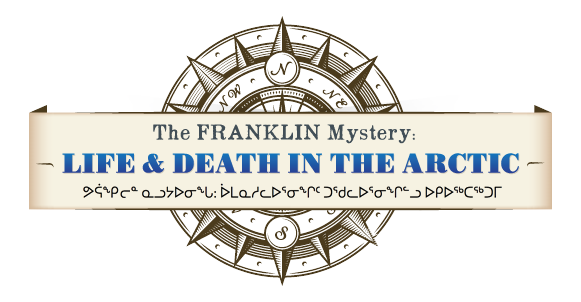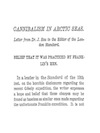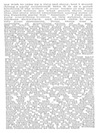Dr. Rae on Cannibalism (1884)
CANNABILISM IN ARCTIC SEAS.
Letter from Dr. J. Rae to the Editor of the London Standard.
BELIEF THAT IT WAS PRACTICED BY FRANKLIN'S MEN.
In a leader in the Standard of the 13th inst. on the horrible disclosures regarding the recent Greely expedition, the writer expresses a hope and belief that these charges may be found as baseless as similar ones made regarding the unfortunate Franklin expedition. It is not my wish to rake up a very sad story, but I would (being a party concerned) take it as a great kindness if the writer of your leader or any one else could inform me what proofs there were that the story about cannabalism among some of the Franklin party was "baseless." I read carefully everything written on this subject, from Dickens downward, and found little to justify your statement. True, there was a quantity of scurrilous abuse of a people of whom the writers knew nothing, the Esquimaux, whom that great and honest and distinguished man Parry called after two years' experienced the most honest and truthful people he had ever met, agreeing in this with my own experience, comparing most favorably with the lying, deceit, and dishonesty spread broadcast among all classes in civilized life, very, very few of whom I could trust as I would the so-called savage Esquimau[x]. Had you, Sir, or any other honest and intelligent man heard, as I did, the story of my friends the Esquimaux about the dead of the Franklin expedition, communicated through my very efficient interpreter, the conviction would have been forced upon you that they spoke the truth. Even my man, John Beads, left in charge at Winter quarters, was informed by natives who had visited him during my absences by signs (Beads knew not the Esquimau[x] language) of what had taken place.
Your leader says that discipline would have prevented men having recourse to cannibalism. I do not believe any discipline would eradicate the cravings of nature, and it is all very well for those who, probably, have never been 24 hours continuously without food in their lives to enlarge most indignantly on the subject. Had they been for days, as I have, living, or, rather, existing, on the smallest scraps of skin and bones, and enjoying the most disgusting-looking food as if it had been the greatest delicacy, had they but witnessed the sufferings and cravings of some of my fine fellows during these times of privation, they would have had some knowledge of what starvation meant. Thank God! I myself was in a great measure free from very painful sensations of hunger, and could shoot as coolly at any game that came in the way as when I was on full allowance.
I feel bound to tell all I heard, however unpleasant and unnacceptable it might be. A distinguished naval officer who followed up and found correct in almost every particular the information I obtained, even to the saddest part, was more politic - or more mean. Schwatka, the American, years afterward heard the same story that had been told to me, in almost the same words. A well-known Admiral once said of me that "Rae would tell the truth, even to his injury." This to the Admiral referred to seemed something unusual, although it appears to me very simple and natural. In the case of the Franklin party's cannibalism, it was certainly the simplest and best thing that could be done, because the story would have surely come to light through my men, who knew as much as I did by conversing with the interpreter, and the very person who attacked me for telling the story would have been equally ready, and had a far better reason to be down upon me for withholding facts. I repeat that cannibalism took place as surely among some of the Greely party as it did among some of Franklin's people, and it took place among the latter as surely as that I am sitting writing this communication at this present time.




